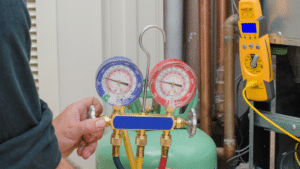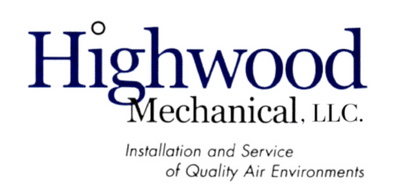The Department of Energy recommends replacing your HVAC system every 10 to 15 years. Companies like Highwood Mechanical, LLC. can make sure that your HVAC issues are being solved. Below will explain the importance of maintaining your HVAC systems, especially before the winter months hit.

Why should I replace my heating systems before winter?
Most people don’t realize that they need to repair their HVAC system until it breaks down. The last thing you want is to be stuck with no heat in the dead of winter. Replacing your heating systems not only prevents you from being stuck in an uncomfortable living situation, but it also has environmental and economic benefits.
Economic Benefits
On average, homeowners can spend over $2,000 per year on their energy bills, with nearly $1,000 of that going to heating and cooling costs. Space heating, space cooling, and water heating are some of the largest energy expenses homeowners face. If installed correctly, a newer high-efficiency HVAC unit can save homeowners up to 20% on heating and cooling costs. Additionally, replacing an old furnace or boiler can help reduce energy costs since newer models are built to be more energy efficient.
Environmental Benefits
The use of fossil fuels is at the forefront of our society, but it also has a significant impact on the environmental decline that our planet faces. Having an old or inefficient HVAC system can actually contribute to that environmental decline. When power plants burn fossil fuels to make electricity, they release greenhouse gases. Increases in greenhouse gas production, combined with the lack of ability for natural processes to absorb the emissions, has led to an increase in global warming. Using newer and more efficient HVAC systems results in less energy use in your home and helps reduce greenhouse gas emission. Also, while it is small, the carbon emissions of non-electric systems still contribute to the issue of pollution. Even if your HVAC system is electric, it is likely that the electricity was generated from a coal-fired power plant which creates negative runoff for the atmosphere.
Furnace Replacement:
Furnaces provide heat to your home during the winter months. The most common types of furnaces are gas and electric. Electric furnaces internally generate heat while gas furnaces burn natural gas to create heat. Another type of furnace in use is an oil furnace, although they are much less common than gas and electric. A furnace should be replaced in a home at least every 15 to 20 years. Furnaces should also be replaced for the following reasons:
- If it frequently needs to be repaired
- If your energy bills are going up despite no change in your energy use
- If some rooms in your home are hotter or colder than other rooms
- If your furnace becomes excessively noisy
- If your furnace has any visible signs of rust or corrosion.
Similar to most devices, today's furnaces offer more energy efficiency than older models. High-efficiency models can help you save money on energy costs. Many furnaces available today also offer variable-speed settings which allows further customization of your home’s heat settings.
Boiler Replacement:
Boilers are similar to furnaces in that they are used to heat your home. Many older homes, especially those in the northeast, are equipped with boilers to provide heat to the house. A boiler uses natural gas or propane for power and acts as a water heater. As hot water is produced, steam is released into pipes throughout the home, providing radiant heat. The heat from the steam is typically dispersed through a radiator, under-floor heating, or baseboard heating. This process is different from a furnace which heats up air and sends that through the pipes to warm your house. Similar to a furnace, however, it is important to maintain your boiler system and boilers should be replaced every 15 years. The reasons for replacing a boiler are the same as for replacing a furnace:
- Frequent repairs are needed
- There are leaks in your boiler
- Uneven heating in the home
- Increase in energy bills with no increase in energy usage
- Excessive noise coming from your boiler
Today's modern boilers operate with high efficiency, often as high as 98.5%, meaning there’s minimal wasted energy.
Upgrading to a split mini ductless:
The mini-split ductless air conditioner is one of the most popular HVAC units on the market in recent years. These units are easy to use and are low cost. Ductless mini-split HVAC systems are commonly seen in apartments or multi-family homes where living spaces are smaller or split up into units. They are also great options for additional heating and cooling anywhere you want more control over the temperature. If you are interested in installing this type of unit in your home it is always recommended to hire a professional HVAC company to install any unit.
Conclusion:
It is important to be vigilant about repairs and replacements to the heating and cooling systems in your home. Some popular heating systems include furnaces, boilers, and split mini ductless system. It is always recommended to have a professional HVAC company, like Highwood Mechanical, LLC. to make sure that your HVAC needs are being met. More information can be found here on the top 10 furnaces, boilers, and split mini systems.
